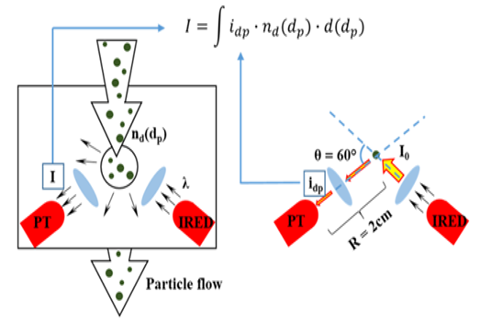|
Using PM sensors to measure air quality at RSMAS campus

Li and Biswas, Aerosol and Air Quality Research, 17: 1691–1704, 2017
|
Particulate matter (PM) sensors employ light scattering principle to measure the mass concentration of fine particles. The scattering signal depends on the aerosol size distributions and particle refractive index. Their low price alleviates the economic concerns in making widespread measurements in large-scale environments, and their compact size makes them readily portable. PM sensors are deployed for a near-real-time monitoring of air quality, and its results are better correlated with reference industry equipment. These PM sensors would be strategically positioned at identified spots, and the mass concentration vs time at various locations would be measured, then these sensors would be calibrated using reference equipment to ensure accurate and reliable data obtained.
The near-real-time monitoring of dust particles mass concentration would inform us when to clean the solar PV panels because with frequent cleaning, there is every tendency for its efficiency to reduce, and with that labor cost of cleaning is significantly reduced.
|




